Craft Thinking: [Not] In Isolation Film Project
Craft Thinking: [Not] In Isolation Film Project
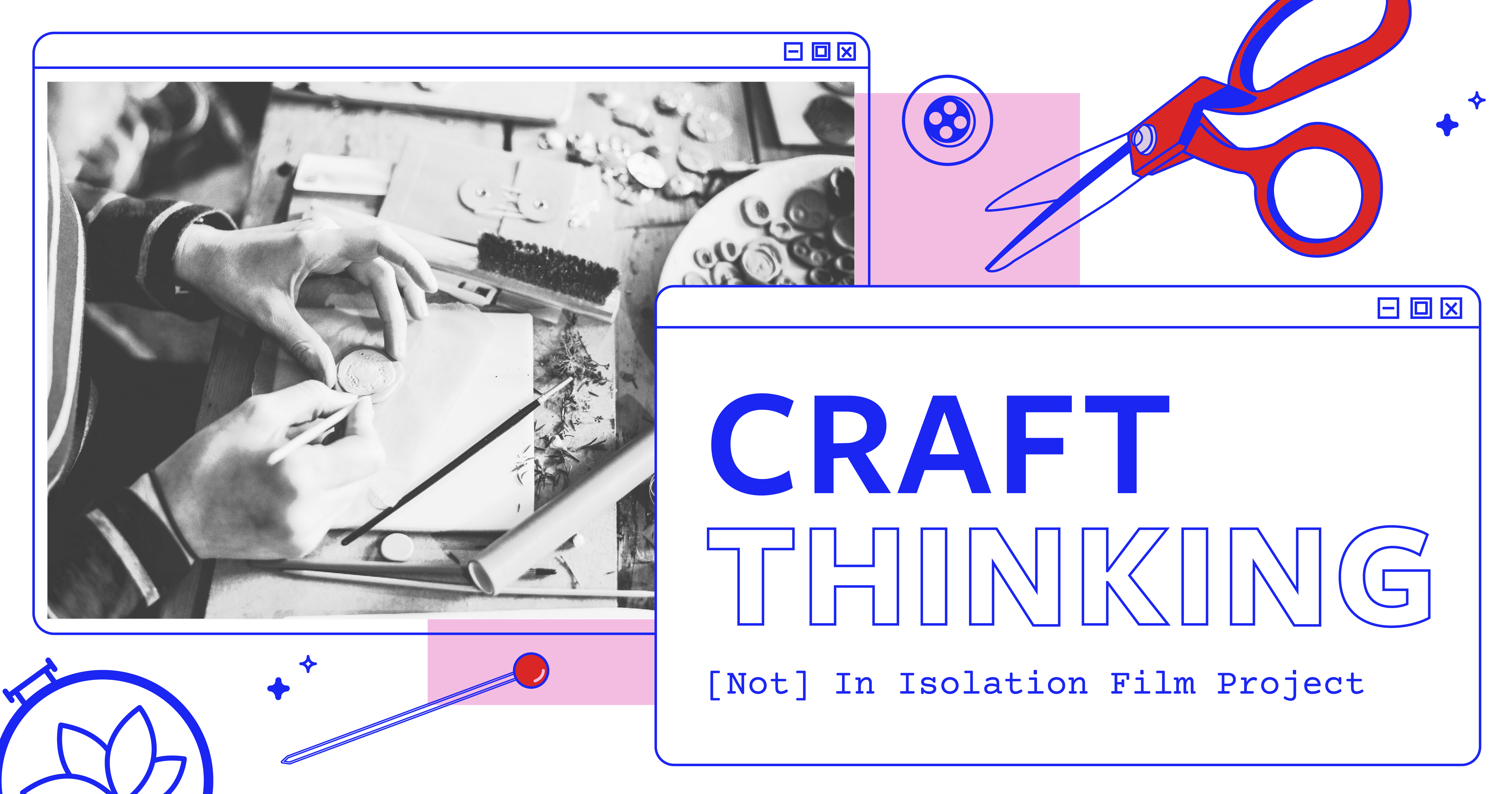
When COVID-19 hit, we saw a craft instructional-video revival as maker communities across the country, working in isolation, took to the internet using social media to connect and share the varied ways craft can make an impact in response to the outbreak.
In collaboration with artists, filmmakers, and organizations stepping up to meet this humanitarian crises head on, the American Craft Council commissioned 10 short video projects - stories of makers who are pursuing these craft-inspired humanitarian efforts across the country.
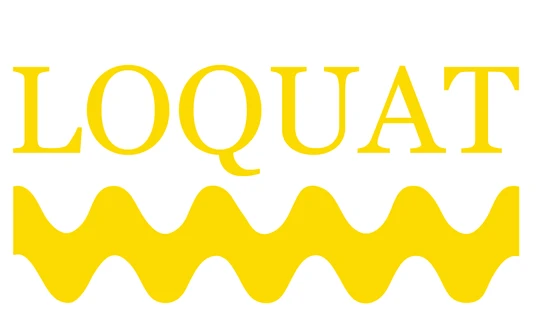
Jordan Carey | Loquat
Artist feature on Jordan Carey of Loquat (Portland, Maine), his handsewn masks, and how he learned his mask-making skills from his knowledge of making other culturally aesthetic handsewn products.
Jordan speaks to how his company and practice have shifted and how being forced to retreat was also an opportunity for self-actualization and to use his craft skills for his community. This feature was produced in collaboration with Indigo Arts Alliance, an organization committed to ensuring the voices of Black and Brown artists are immune from erasure during this pandemic.
Jordan Carey is a Bermudian designer and artist currently based in Portland, Maine. He received his BFA in Textile and Fashion Design from Maine College of Art (2019). As a MECA student, Jordan's work was predominantly focused on the meshing of cultural aesthetics and influences ever present and changing in the African diaspora and island life. Since graduating, he has continued to develop as assistant designer for the Maine-based fashion house Jill Mcgowan as well as through residencies and freelance work. Jordan has launched the Loquat brand as a vehicle for sharing fluid cultural aesthetics and craft sensibilities.

Kei & Molly Textiles, LLC
Entrepreneur feature on Kei & Molly Textiles, LLC (Albuquerque, New Mexico), whose aim to serve as an economic engine for this area by providing work, skills, and support for those looking to build a better life for themselves and their families had to shift as a result of the shutdown. Isolated in their own studio with no workforce, they shifted their production to supplying personal protective equipment as well as creating this story with their iPhones.
Kei & Molly Textiles, LLC, is a social enterprise business located near the International District of Albuquerque committed to creating good jobs for immigrants and refugees in their community.
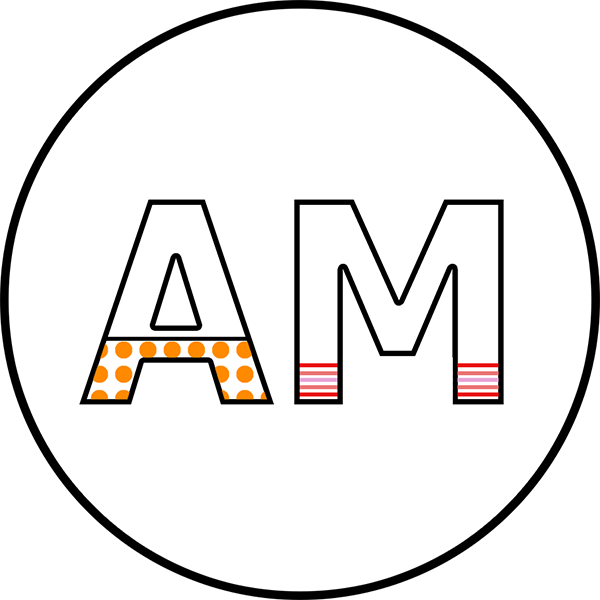
Avra Messé
Healthcare feature on Avra Messé, a ceramist and front-line healthcare worker from Brooklyn, New York. Avra tapped into her ceramic and craft thinking skills to tackle the outbreak in a critical care unit with her colleagues, as well as worked with her son to create this self-shot video for the American Craft Council.
Avra has been a ceramic artist for most of her life, producing sculpture and the occasional pot, and has a BFA and MFA in ceramics. Her work explores themes of the body and mechanical systems. Along the way, she wanted to have a different kind of impact in the world, and now Avra is in her final stretch of nursing school. She is currently working in a hospital in NYC as part of the COVID-19 response. She lives in Brooklyn with her wife, two kids, two dogs, and a senior-citizen cat named, coincidentally, Nurse.
“While people are always surprised to hear of my leap from art to medicine, I see a solid connection. For me, working with my hands and tools translated seamlessly to procedures and medical devices. I approach art-making with a foundation of technical skill, critical thinking, and intuition, and I use the same approach when working with patients in the hospital. This video is about the bridge between these two selves and how each informs the other. Right now, I’m honored to work alongside more veteran healthcare workers as part of the response to COVID-19. I also find that what I’m a witness to has driven me back to the studio to unpack some of this experience.” ~ Avra Messé
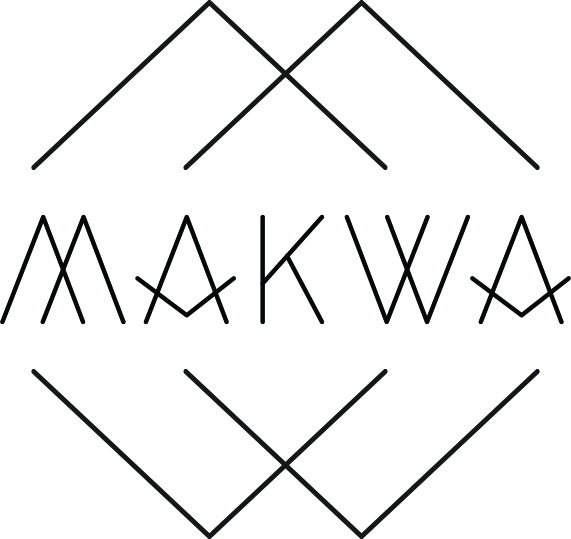
Maggie Thompson | Makwa Studio
Artist feature on Maggie Thompson of Makwa Studio (Minneapolis, Minnesota) focusing on how her studio art practice has informed her mask-making process and how her entrepreneurial goal and dreams shifted due to COVID-19.
Maggie is a textile artist currently focused on making masks for the COVID-19 pandemic, where her practice through Makwa normally centers on knitting using luxury yarns and wool sourced from a US mill. Maggie designs and handlooms each item in Northeast Minneapolis at the Northrup King Building. Maggie is passionate about creating high-quality handmade goods and how her practice contributes to the discussion of contemporary Native art and fashion.
Makwa Studio was started by Maggie Thompson (Fond Du Lac Ojibwe) in 2014. Makwa, pronounced like "Mukwa," means bear in the Ojibwe language. Makwa Studio is a creative space with a focus on textiles, art, and fashion. Much of the work is influenced by Thompson's Native heritage where she brings subtle cultural references to her patterns and design work.
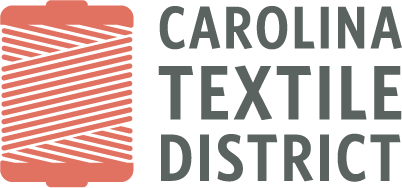
Carolina Textile District
Industry feature on Carolina Textile District (Morganton, North Carolina), a member-governed and -driven network whose mission is to revitalize the American textile industry in a way that builds on local people, assets, and heritage.
Sew Co., a team of expert sewers, pattern-makers, and designers based in in Hendersonville, North Carolina, is a partner with CTD and is responding to the PPE needs during the COVID-19 crisis. Libby O'Bryan, owner of Sew Co., began her contract manufacturing business to preserve the skill of sewing. Joining forces with other values-aligned manufacturers through CTD allows Sew Co. to be a part of a bigger industry-wide movement for ethical, sustainable, cooperative manufacturing. The rich textile legacy and deep participatory relationships CTD has built in Western North Carolina set a strong foundation for a quick, responsive, collective shift to PPE production at the onset of the coronavirus. CTD, its partners, and its neighbors – more than 50 manufacturers – are producing masks and gowns for healthcare workers, school faculty, and other frontline workers while fortifying the strength of their community.
CTD is invested in creating a new and dynamic regional textile industry that values the worker, the environment, and the community. As a member-governed and -driven network of values-aligned textile manufacturers in North and South Carolina, CTD hosts workshops and programs and provides contacts and resources that help both new and established companies grow and thrive.

Open Works
Maker space feature on Open Works (Baltimore, Maryland), a community space for local 3D makers, designers, and artists that has been coordinating with organizations throughout Baltimore to produce splash masks and cloth face coverings for healthcare workers in need.
Baltimore is America’s original maker city. From America’s first railroad to the world’s largest steel mill, the charm city has built everything from locomotives to Liberty ships. But manufacturing has changed, and the factories that once fueled the city are gone. Open Works was founded in 2016 to rebuild Baltimore’s manufacturing economy from the grassroots up — one maker at a time. Now one of America’s largest nonprofit makerspaces, Open Works supports 118 jobs, works with over 1,000 young people per year through educational programs, and is now focused on responding to COVID-19.
"We are here to support you wherever you are on your maker journey – learning new skills, launching new businesses, or building new relationships in Baltimore’s largest creative community. I think what Open Works gets right and understands very naturally is that it takes a village to raise a visionary." ~ Allison Brown, entrepreneur and Open Works member
Zahit Mungan
A look at how Zahit Mungan, a kitemaker from Turkey’s southeastern province of Mardin, was affected by the closures of COVID-19 and his attempt to bring his communities together through his craft.
Zahit was six years old when he fell in love with kites in the toughest territory of his country. His first full length movie – Rising Puppets – is an award-winning short that tells the story of a passionate boy who grew up in the shadow of kites and how he brings joy to Mesopotamia.

Women of Color Quilters Network
For African American women, quilts have always been at the core of artistic expression, taking form in the social, economic, and spiritual lives of the women who make them. Founded by Dr. Carolyn Mazloomi in 1985, Women of Color Quilters Network (WCQN) is a national nonprofit organization whose mission is to educate, preserve, exhibit, promote, and document quilts made by African Americans.
WCQN is one of the few artistic organizations that captures the intersection of women’s artistic expression, cultural preservation, and socio-economic empowerment. With this close-knit group including more than 1,000 women of color, largely from the deep South, most over the age of 65 with little access to technology, one could not think of a community more vulnerable to a global pandemic. WCQN has lost several members to COVID-19, and cofounder Carolyn Mazloomi speaks to ways this community stood up in support to respond to the outbreak. WCQN has collectively made over 21,000 masks for community, business, family, and friends.
WCQN members' quilts have been exhibited in numerous prestigious museums in the United States, Asia, Europe, and Africa. The organization's many educational projects foster exposure to the arts and creative development, helping improved self-esteem while presenting the benefits of quilting to audiences of all ages, income levels, ethnic background, and learning abilities. WCQN founder Carolyn L. Mazloomi is an artist, author, curator, and recipient of the NEA National Heritage Fellowship. She has been involved in the economic development of women through the arts for over forty years and has been recognized by the International Labour Department in Geneva and the United Nations for her efforts.
Aram Han Sifuentes
As the global pandemic spread, closing studio practices, halting makers' economies, and affecting supply chains, social practice artist Aram Han Sifuentes used this time to retreat and prepare for the next potential crisis: the 2020 election. And then, the murder of George Floyd in Minneapolis happened.
This short takes a look at how Aram has been using craft thinking to produce two bodies of work, Voting Kits for the Disenfranchised – a toolkit for artists, activists, educators, students, and others to produce imaginative voting stations that will bring attention to voting barriers in the United States – as well as her Protest Banner Lending Library.
"As an immigrant and a daughter of a seamstress, I learned to sew at age six. It was not a choice but rather a necessity to help my mother earn a living. In this way, sewing has ever since been an important part of me, my body memory, and my politics. Sewing is my medium to investigate identity politics, immigration and immigrant labor, possession and dispossession, citizenship and belonging, dissent and protest, and race politics in the United States. My art practice situates itself at the intersection of fiber, social practice, performance, and pedagogy. At the core of my practice, I create socially engaged and materially rich projects in an ‘art world’ environment that are available and accessible for those who are disenfranchised, particularly for dispossessed immigrants of color. I confront social and racial injustices against the disenfranchised and riff off of official institutions and bureaucratic processes to reimagine new, inclusive, and humanized systems of civic engagement and belonging. I do this by creating participatory and active environments where safety, play, and skill-sharing are emphasized. Even though many of my projects are collaborative and communal in nature, they incite and highlight individuals' experiences, politics, and voices. Much of my communal work revolves around sharing skills as a point of connection. We share sewing techniques to create multiethnic and intergenerational sewing circles, which become a place for empowerment, subversion, and protest." ~ Aram Han Sifuentes

Juxtaposition Arts
Founded in 1995, Juxtaposition Arts (JXTA) is a youth employment center and community development social enterprise rooted in North Minneapolis. JXTA’s programs offer college-level training to teens through a core program known as JXTALabs, which annually employs 70 youth ages 14 to 21 in five revenue-earning art and design micro-businesses. The JXTALabs offer a wide array of high-quality art and design services to local and regional clients, including logo designs, screen-printed textiles and merchandise, large-scale public installations, and murals.
This short takes a look at how JXTA adjusted its programs due to COVID-19 with the health and safety of students, staff, and apprentices as the number one priority. Due to the uncertainty around COVID-19, JXTA has updated its plans for summer programming. Some sessions were canceled, and other programs have fewer participants. JXTA's core program VALT (Visual Art Literacy Training) is now conducted online, and art and design labs have staggered schedules to accommodate social distancing. Operations staff work virtually or staggered in the office whenever possible.
2020 marks JXTA’s 25th anniversary and second year into a four-year, $14 million capital and legacy campaign to invest in facilities and programming and in the creative futures of youth in North Minneapolis. The goal of the campaign is to create a stronger cultural ecosystem for our region, helping to guarantee a cultural legacy and asset for future generations in North Minneapolis.
The [Not] In Isolation Film Project is made possible through generous support from the Windgate Foundation.
